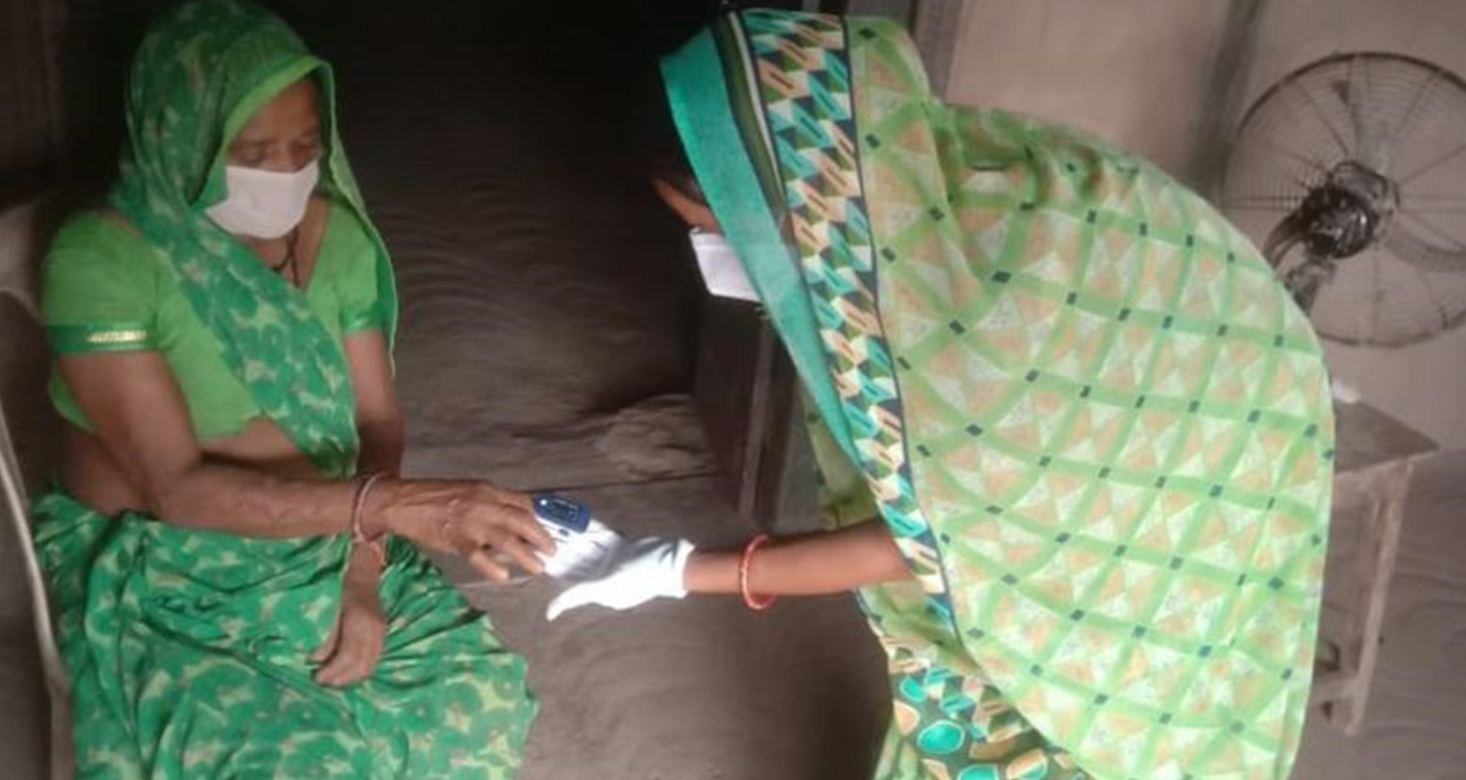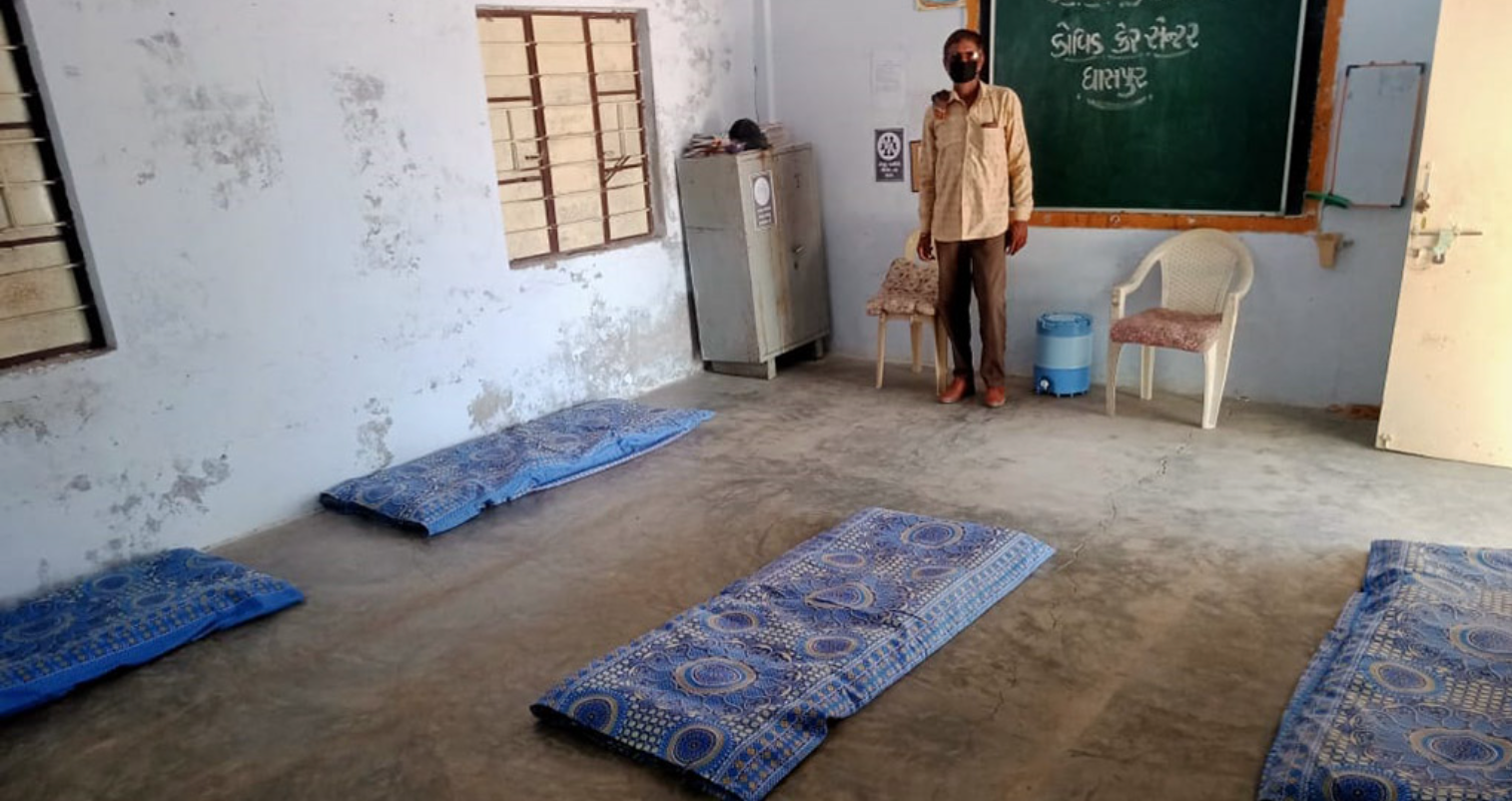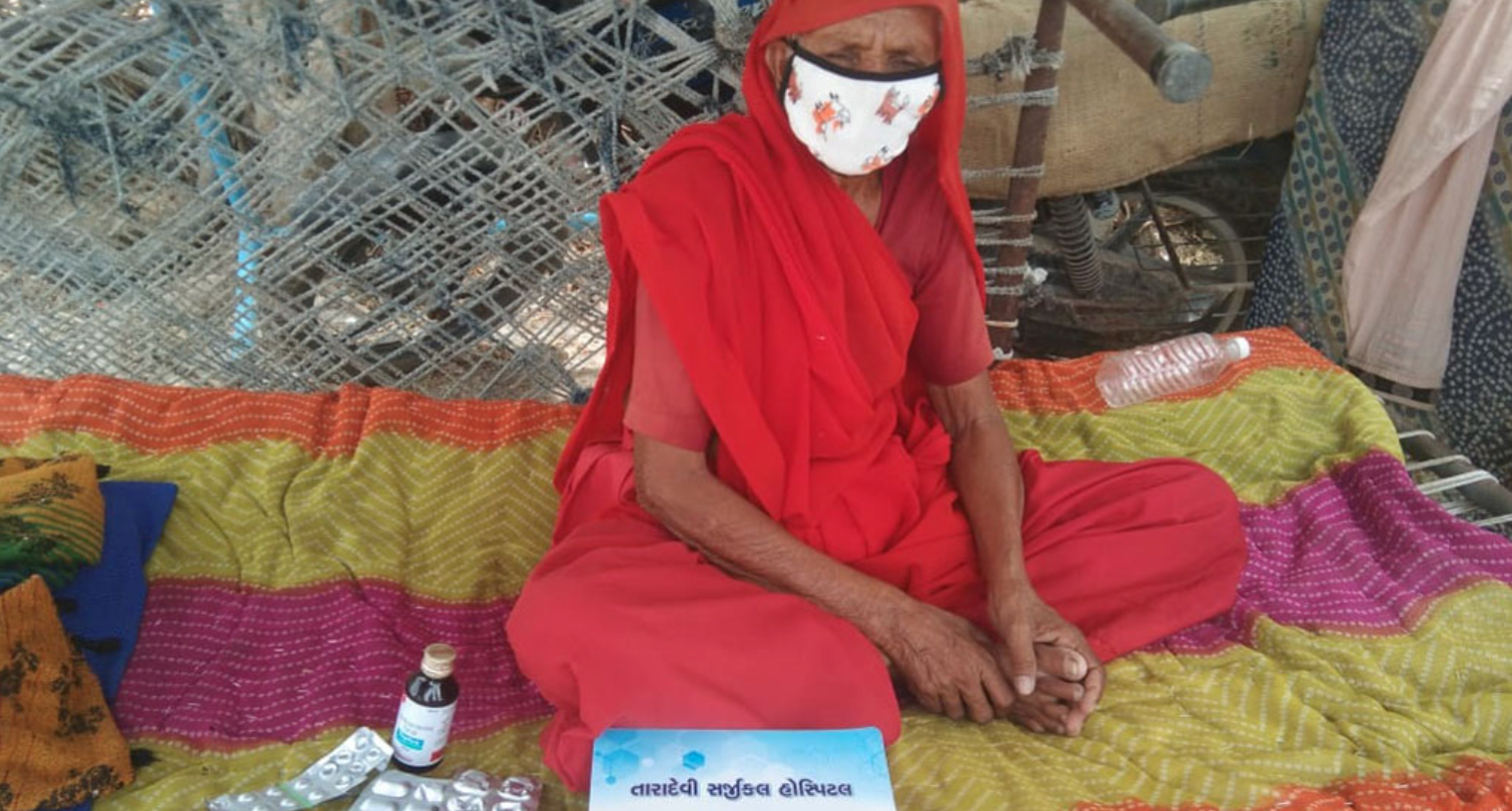Mitigatory measures need to recognize the fact that infected women and women caregivers get a differential treatment in villages due to discriminatory and insensitive perspectives
Poonam Kathuria, Karen Pinerio, Krishna Keshwani and Neha Chavda – Jun 07, 2021 – Patan and Surendranagar, Gujarat
33-year-old Nirmala Solanki* of Bajana village in Surendranagar district contracted the coronavirus five days after her husband tested positive for COVID-19. She had to prepare his meals, give his medication on time, wash his clothes and his utensils. She could not follow the COVID-19 advisory of avoiding contact with articles used by the patient.
The couple shifted to a separate house owned by the family. Nirmala Solanki continued to look after her husband, cook, clean and wash their clothes. While her husband could rest and recuperate, she had no such choice. Her marital family was of no support.
This is the story of countless rural women who test positive for COVID-19, or care for infected family members. Even when they have the symptoms, they postpone testing as long as possible. They drink hot water, herbal drinks, take medicine and continue with their chores. Since they are the primary caregivers, the family does not encourage testing.
In order to understand the plight of women, we, at Society for Women’s Action and Training Initiatives (SWATI), interacted with villagers. SWATI generally works on prevention of all forms of violence against women.
We spoke with many women, accredited social health activists (ASHAs) and social workers in the villages of Gujarat where we work, to understand women’s perspectives of living through this pandemic. We found that the physical, emotional and health toll on women caregivers during this second wave of the pandemic is being overlooked.
Neglected pregnant women
ASHA workers told us that nutrition and food intake of the family has suffered and there have been increased complaints of anemia, malnutrition and miscarriages in the last one year. In a family with an infected member, the needs of a pregnant woman are neglected.

During one of her routine visits an ASHA found Krishna Semna of Santhli village in Patan district, who was five months pregnant, suffering from exhaustion and weakness. Krishna’s father-in-law had died of COVID-19 five days earlier and she had eaten very little since then. On examination, her oxygen level was found to be 90.
Alarmed, the ASHA instructed the family to take Krishna to the nearest hospital immediately. When the family did not pay heed, ASHA called the ambulance helpline and on getting no response called an ambulance driver she knew. Krishna was taken to the hospital in a nearby town, and then to the district hospital when her condition worsened. She tested positive and had to be admitted in the ICU.
Priority to family’s needs
That women are the primary caregivers is an accepted social norm in most families and by women themselves. Women also cite their burden of work preventing timely detection and treatment of any illness and it is no different in the case of COVID-19.
In Jawaharnagar village in Patan district, Shanta Chande tested positive a few days after taking the vaccine. The doctor at the primary health center advised her to remain quarantined at home and take the prescribed medication and rest.
Since it was harvest time and since their farm was quite far from the village, she decided to quarantine herself at the farm and also help the family with the harvest work. A week later she died in her sleep. Her worsening condition had gone unnoticed.
Everyone blamed the vaccine for Chande’s death. Rama, the local ASHA said that incidents such as these have added to misconceptions about the vaccine. Women are especially resistant to take the vaccine, fearing death or other illnesses which will affect their responsibility to their family and farm work.
Lockdown impact
Lockdown restrictions in many areas have affected regular operations of public infrastructure facilities and even private transport facilities such as chhakdas and autos as people are not venturing outdoors. Women are the most affected as they depend most on public transport.
A community worker witnessed a woman with her young daughter who was ill, waiting at the junction in the village, hoping for a ride into town to the doctor’s clinic. After waiting for two hours the lady had to return because the doctor’s consultation hours would be over by the time she reached.
Gender discrimination
Discrimination by families in the treatment of COVID-19 affected women was also revealed during our interactions. An ASHA told us about a 37-year-old woman who had recently succumbed to COVID-19. Kamla Bhoi* of Sadla village in Surendranagar district was at home, taking the medicines provided by the primary health center and supervised by the ASHA.
After a few days her health deteriorated and the ASHA advised the family to take her to the doctor immediately. The doctor said that Bhoi needed oxygen urgently and that it was available at the district hospital 20 km away.
However, the family took Bhoi back home and she died the next day. In another family that the ASHA visited, a man was infected. His infection was not very serious but the man was being treated at a private clinic where the family was paying Rs 10,000 every day.
The situation of daughters-in law is precarious. If she tests positive while looking after an infected family member, the family accepts the situation. But if she is the first one to test positive, she faces the wrath of the entire family. It is considered her fault and she is stigmatized for risking the entire household. Though she is infected, she continues to do the chores.
COVID care centers
In a much-needed initiative, with the help of panchayats, the Gujarat government has set up covid care centers at village level for quarantining patients. However, for these to be utilized, awareness needs to be created, and dignity of patients ensured.

Currently these are perceived as centers for patients whose families cannot look after them. Hence there is resistance in utilizing them. Most centers have beds on the floor. Care needs to be taken to ensure separate, safe and hygienic rooms, water and sanitation facilities for women.
Pandemic management
Most of the measures around managing the coronavirus pandemic are either gender-blind or gender-neutral and largely ignore the fact that the pandemic renders differential treatment to women, especially in the social-cultural-economic realms. There is a need to recognize the secondary status and neglect faced by women and their role as the sole caregivers for the family.
Recent data indicate a gender gap in vaccination too. In Gujarat, as reported by the media, women’s vaccination rate is 13% lower than men. Families make the discriminatory choice of having the male members take the vaccine first, rationalizing that they usually go out of the house more. While the common-place argument has some merit, it leads to continued de-prioritization of women’s health and supports their dependence on families and spouses in order to access health services.
Special attention should be ensured to pregnant, lactating, disabled, single, elderly women and women with co-morbidities. Supplementary rations provided to them should be doubled. Panchayats and rural health services should encourage vaccination for all women.
Setting up of meal service facilities for families of COVID-19 affected patients can reduce some of the care burden on women. Funds for this can be secured through Mahatma Gandhi National Rural Employment Guarantee Scheme (MGNREGS), local donors or community service organizations (CSOs).
Community leaders, panchayat members and frontline health workers need to take a lead in sensitizing the community to prioritize women’s health, particularly in providing COVID-19 treatment and vaccination for women.
* Names have been changed to protect privacy.
The authors are associated with SWATI. Views are personal. Email: Pkathuria.swati@gmail.com






